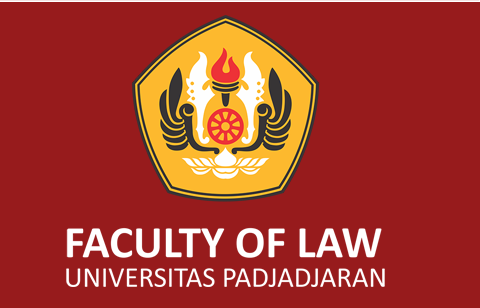Abstract
As a public facility, port has a significant potential to be cluster of the Covid-19 spread. Many states have implemented policies of denials and restriction of port access to protect people’s health. This study aims to analyze port denials and restrictions policies settings based on international law. In addition, this study is to analyze whether the status of state of emergency will affect state’s obligations based on international law. This study was conducted by analyzing associated international treaty law and customary law. The study concludes that no international treaty law and customary law prohibit port denials and restrictions because port is under the sovereignty of respected coastal state. The state is free to implement any policies. Without any permit, foreign ships are not allowed to enter and dock at the port of the coastal state. However, in a situation of danger or distress, foreign ships have the right to enter port. The IHR 2005, as a special instrument dealing with public health, also provides an opportunity for coastal state to prevent ship embarking and disembarking passengers if the ship is exposed to a pandemic disease, such as Covid-19. In such case, foreign ship may be prohibited from entering and docking at port of coastal state. On the other hand, in a situation of danger or distress, foreign ship has the right to enter port. In contrast, the 1923 Port Convention gave permission to state to close ports in urgent situation that endangered national security.
Kebijakan Penolakan dan Pembatasan Pelabuhan Selama Pandemi Covid-19 Berdasarkan Hukum Internasional
Abstrak
Pelabuhan merupakan salah satu akses masuknya kapal asing ke suatu negara dan juga dapat menjadi akses masuk bagi penyebaran pandemi Covid-19. Demi melindungi kesehatan masyarakatnya, banyak negara menerapkan kebijakan penolakan dan pembatasan akses pelabuhan. Artikel ini bertujuan untuk menganalisa pengaturan kebijakan port denials dan restrictions dalam kerangka hukum internasional. Selain itu, penelitian ini juga akan menganalisa bilamana status State of Emergency yang dideklarasikan oleh negara akan mempengaruhi kewajiban dalam hukum internasional terkait dengan kebijakan port denials and restrictions. Penelitian ini dilakukan dengan melakukan analisa terhadap hukum perjanjian internasional dan hukum kebiasaan internasional terkait. Penelitian ini menunjukan bahwa tidak ada hukum perjanjian internasional dan hukum kebiasaan internasional yang melarang kebijakan penutupan dan pembatasan akses pelabuhan suatu negara pantai. Hal ini dikarenakan pelabuhan berada di dalam yurisdiksi negara pantai di mana negara tersebut bebas untuk menerapkan kebijakan apapun. Tanpa adanya izin, kapal asing tidak diperbolehkan untuk masuk dan berlabuh di pelabuhan negara pantai. Meskipun demikian, dalam keadaan bahaya atau kesulitan, kapal asing memiliki hak untuk masuk ke dalam pelabuhan negara pantai. IHR 2005 sebagai instrument khusus yang menangani kesehatan publik juga memberi celah bagi negara pantai untuk melakukan pencegahan masuknya kapal untuk menaik-turunkan penumpang jika dirasa kapal tersebut terpapar Covid-19. Bahkan, Port Convention 1923 memberikan izin kepada negara untuk menutup pelabuhannya dalam keadaan mendesak yang membahayakan keamanan negara.
Kata kunci: keadaan darurat negara, pandemi Covid-19, penolakan dan pembatasan pelabuhan.
Recommended Citation
Desmonda, Angela Jessica
(2020)
"Port Denials and Restrictions Policies during Covid-19 Pandemic Based on International Law,"
Padjadjaran Jurnal Ilmu Hukum (Journal of Law): Vol. 7:
No.
3, Article 3.
DOI: https://doi.org/10.22304/pjih.v7n3.a5
Available at:
https://journal.unpad.ac.id/pjih/vol7/iss3/3
References
Books
Carlo Caduff, The Pandemic Perhaps: Dramatic Events in A Public Culture of Danger, California: University of California Press, 2015.
Derek S. Reveron and Kathleen A. Mahoney-Norris, Human and National Security: Understanding Transnational Challenges, Edisi Kedua, New York: Rouledge, 2019.
Hermanto Dwiatmoko, Peran Transportasi Perkeretaapian dalam Pembangunan Nasional Melalui Analisis Input-Output, Jakarta: Kencana, 2018.
Muchamad Chakim dan Marjan Miharja, Eksistensi Pasal 28 ayat I, Surabaya: CV. Penerbit Qiara Media, 2019.
Desai, Pranav N. dan K.V. Radhakrishnan, “Science, Technology, Coastal Zone Management and Policy”, New Delhi: Allied Publishers Private Ltd., 2003.
United Nations Conference on Trade and Development (UNCTAD), Port Management Series Volume 1, Jenewa: United Nations, 2014.
Journals
American Bureau of Shipping, “Guidance Notes on Response Measures to COVID-19 for the Marine and Offshore Industries”, ABS, 2020.
Anna Staal, “Impact of COVID-19 on Procurement and Supply Chains – A Way Forward for New Zealand?”, Auckland University of Technology, 2020.
CHIRP Maritime, “Trapped by COVID-19 – Highlighting the Plight of Seafarers on Board Vessels”, Maritime Insight, 2020.
Dara Grennan, “What is a Pandemic?”, JAMA Patient Page, Vol. 321, No. 9, 2019.
Eisuke Nakazawa (et.al), “Chronology of COVID-19 Cases on the Diamond Princess Cruise Ship and Ethical Considerations: A Report from Japan”, Disaster Medical Public Health Prep., 2020.
Fengxiang Song (et.al), “Emerging 2019 Novel Coronavirus 2019-nCov) Pneumonia”, Radiology, 2020.
Hiroshi Nishiura, “Backcalculating the Incidence of Infection with COVID-19 on the Diamond Princess”, Journal of Clinical Medicine, 2020.
International Chamber of Shipping, “Coronavirus (COVID-19): Guidance for Ship Operators for the Protection of the Health of Seafarers”, Version 1.0, 2020.
J. Ashley Roach, “Today’s Customary International Law of the Sea”, Ocean Development and International Law, 2014.
Joachim Rocklov (et.al), “COVID-19 Outbreak on the Diamond Princess Cruise Ship: Estimating the Epidemic Potential and Effectiveness of Public Health Countermeasures”, Journal of Travel Medicine, Vol. 27, No. 3, 2020.
Kenji Mizumoto dan Gerardo Chowell, “Transmission Potential of the Novel Coronavirus (COVID-19) Onboard the Diamond Princess Cruises Ship, 2020”, Infectious Disease Modelling, Vol. 5, 2020.
Leah F. Moriarty (et.al), “Public Health Responses to COVID-19 Outbreaks on Cruise Ships – Worldwide, February – March 2020”, Morbidity and Mortality Weekly Report, Vol. 69, No. 12, 2020.
Martin Ratcovich, “The Concept of ‘Place of Safety’: Yet Another Self-Contained Maritime Rule pr a Sustainable Solution to the Ever-Controversial Question of Where to Disembark Migrants Rescued at Sea”, Australian Year Book of International Law, Vol. 33, 2015.
National Academies of Science, Engineering, and Medicine, “Rapid Expert Consultations on the COVID-19 Pandemic”, The National Academies Press, 2020.
World Health Organization (WHO), “Coronavirus Disease (Covid-19)”, Situation Report – 137, 2020.
Legal Documents
Convention and Statute on the International Regime of Maritime Ports 1923 was adopted in Geneva on 9 December 1923 and entered into force on 26 July 1929.
Convention on Facilitation of International Maritime Traffic (FAL) was adopted on 9 April 1965 and entered into force on 5 March 1967.
International Convention on Maritime Search and Rescue (SAR) was adopted on 27 April 1979 and entered into force on 22 June 1985. The last amendment was made in 2004 concerning persons in distress at sea, adopted in May 2004 and entered into force on 1 July 2006.
International Convention on Salvage (Salvage Convention) was adopted on 28 April 1989 and entered into force on 14 July 1996.
International Health Regulation (IHR) 2005 was adopted in Geneva on 23 May 2005 and entered into force on 15 June 2007.
International Maritime Organization, Circular Letter No. 4204/Add.14, 5 Mei 2020, Coronavirus (COVID-19) – Recommended Framework of Protocols for Ensuring Safe Ship Crew Changes and Travel during the Coronavirus (COVID-19) Pandemic.
Maritime Labour Convention (MLC) 2006 was adopted in Geneva on 23 February 2006 and entered into force on 20 August 2013.
United Nations Convention on the Law of the Sea (UNCLOS) 1982 was adopted in Montego Bay on 10 December 1982 and entered into force on 16 November 1994.
Other Documents
Cambridge Dictionary, “State of Emergency”, , [accessed on 29 May 2020].
Inga Heiland (et.al), “An Unintended Crisis: COVID-19 Restrictions Hit Sea Transportation”, 2020, , [accessed on 1 June 2020].
Marcus Hand, “ITF Calls on Governments to Allow Seafarers Emergency Medical Treatment Ashore”, 2020, , [accessed on 11 June 2020].
Pacific Tourism Organization, “Coronavirus: Which Cruise Ports Are Closed”, 2020, , [accessed on 1 June 2020].
Willhelmsen, “COVID-19 Global Port Restrictions Map”, 2020, , [accessed on 7 June 2020].
Willis Re, “COVID-19 Impact on the Marine and Energy Industry”, Presented by Willis Towers Watson, 2020.
World Economic Forum, “How to Protect Global Supply Chains under Threat from the COVID-19 pandemic, , [accessed on 10 June 2020].
DOI
https://doi.org/10.22304/pjih.v7n3.a5










